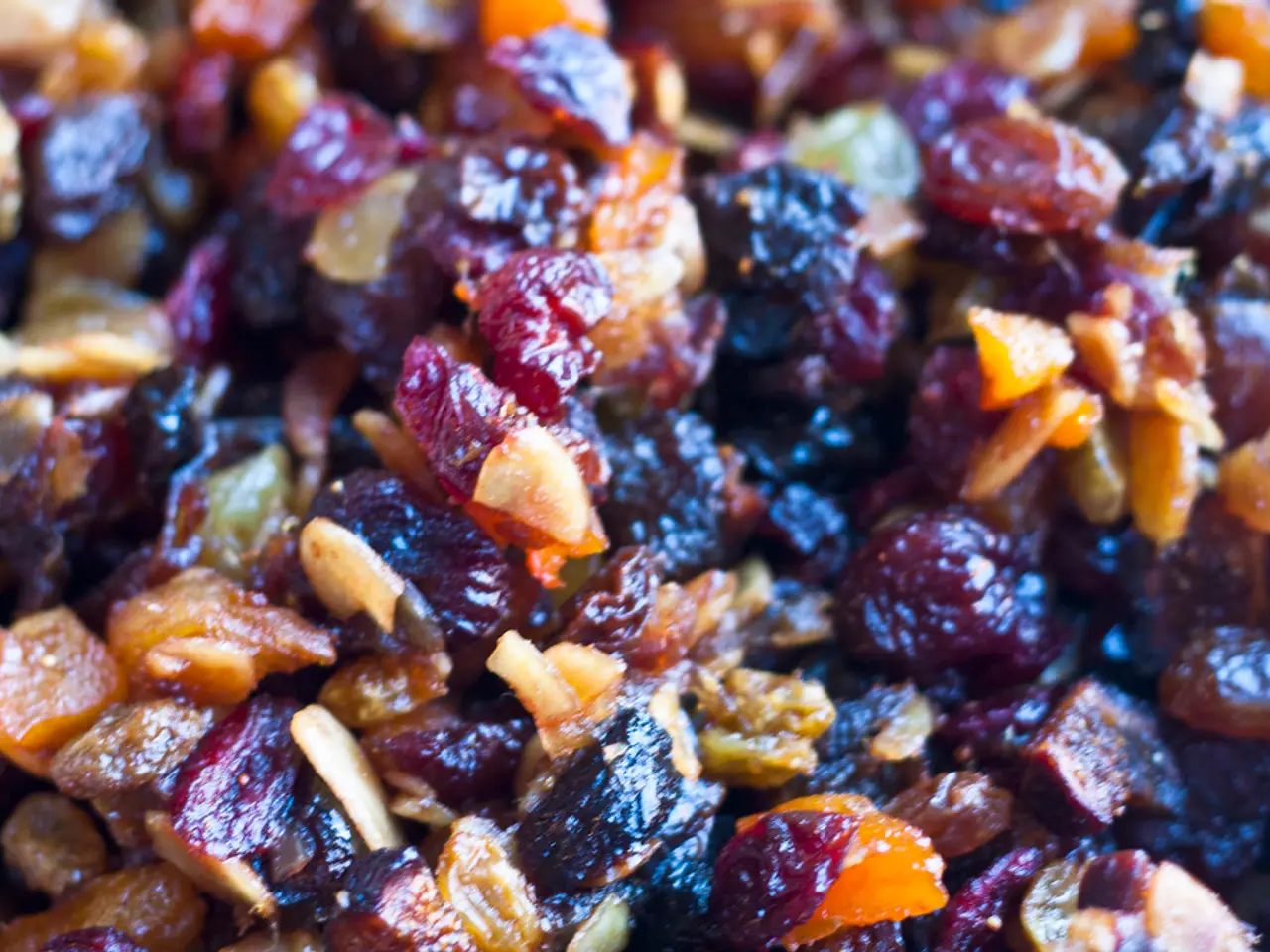Kidney Failure Diet: Consuming Approved Foods and Steering Clear of Prohibited Ones
Managing Diet for Kidney Failure: A Guide to Medical Nutrition Therapy
Living with kidney failure requires careful management of various aspects of daily life, and diet is no exception. Every dialysis and transplant center has a dedicated dietitian who specializes in medical nutrition therapy (MNT) to assist with meal planning.
A person with kidney failure should specifically limit or avoid foods high in potassium, phosphorus, sodium, and protein, as these can strain kidney function or cause harmful imbalances.
Foods to Limit or Avoid
- Potassium-rich foods: Bananas, oranges, potatoes (especially with skin), avocados, tomatoes, tomato products, all fruit juices, and other fruits like kiwis, spinach, sweet potatoes, certain nuts (like almonds, walnuts), and soy products should be consumed sparingly.
- Phosphorus-rich foods: Seafood (including canned salmon, sardines), dairy products (milk, cheese), nuts and seeds (pumpkin, sunflower), whole grains (brown rice, whole wheat bread), lentils, beans, organ meats, processed cheese, and certain processed foods should be limited.
- High-sodium foods: Processed meats (ham, bacon, salami, deli meats), canned foods, processed cheeses, canned soups, ready meals, snack foods like crisps, salted pretzels, and other packaged foods should be avoided or consumed in moderation.
- Excessive protein: A low-protein diet is generally recommended, particularly avoiding high-protein intake from animal sources unless on dialysis. Legumes like beans and lentils should be consumed with caution due to their potassium and phosphorus content.
Additional Considerations
- Avoid dark-colored sodas that contain phosphorus additives.
- Oxalate-rich foods like nuts, soy, spinach, and sweet potatoes increase kidney stone risk and should be moderated.
- Fruits and vegetables are important but should be chosen to control potassium content; working with a dietitian can help tailor the diet appropriately.
Maintaining Balance
Phosphorus intake should be managed to prevent mineral imbalances and bone health issues. Sodium and salt intake should be managed to control blood pressure and fluid retention. Consuming too much protein can increase the workload on the kidneys, but a dietitian can help determine the appropriate amount based on factors like body size, stage of kidney disease, and protein level in urine.
Keeping track of any prescribed or recommended supplements is important to ensure proper use and avoid negative interactions with kidney function. Calorie intake should be monitored to maintain a moderate weight, which can positively affect overall health and kidney function. Protein intake should be tracked to avoid excessive waste production and strain on the kidneys.
Dietary Plans
The DASH diet focuses on fruits, vegetables, whole grains, fish, poultry, low-fat dairy products, beans, nuts, and seeds, while limiting salt, added sugars, fat, red meats, and phosphate-rich foods. The National Kidney Foundation suggests several diet plans for people with kidney failure, including the DASH diet and a plant-based diet.
A vegetarian or plant-based diet may benefit people with kidney disease, focusing on fruits, vegetables, legumes, healthy oils, while limiting or avoiding dairy, eggs, fish, meat, and poultry.
Coverage and Support
For individuals with an insurance policy other than Medicare, they can inquire whether it includes coverage for MNT pertaining to kidney failure. Medicare covers the cost of MNT for individuals with kidney disease who have a written referral from their doctor.
For people with kidney failure, it's advised to avoid or limit high sodium foods such as processed and packaged foods, canned soups, fast food, and salty snacks. Monitoring water and fluid intake to prevent excessive fluid buildup is also crucial.
In conclusion, the dietary approach for kidney failure focuses on limiting potassium, phosphorus, sodium, and protein intake by avoiding or reducing specific high-content foods, while ensuring adequate nutrition under medical guidance. With the help of a dietitian, individuals can maintain a healthy and balanced diet that supports their overall health and kidney function.
- A nutritionist, who is a key figure at every dialysis and transplant center, specializes in medical nutrition therapy (MNT) for managing meal planning for individuals with kidney failure.
- Chronic Kidney Disease (CKD) necessitates that a person should specifically limit or avoid foods high in potassium, phosphorus, sodium, and protein, to prevent harming kidney function.
- In kidney failure, certain food items like bananas, oranges, potatoes, avocados, tomatoes, dark-colored sodas, and some nuts should be consumed sparingly due to their high potassium content.
- A low-protein diet is generally recommended for people with kidney failure, particularly avoiding high-protein intake from animal sources unless on dialysis.
- Phosphorus intake should be managed carefully to prevent mineral imbalances and bone health issues, and processed foods containing phosphorus additives should be avoided.
- It's crucial for people with kidney failure to monitor their protein intake to avoid excessive waste production and strain on the kidneys.
- The DASH diet and a plant-based diet are suggested by the National Kidney Foundation as effective dietary plans for individuals with kidney failure, focused on fruits, vegetables, legumes, and whole grains.
- Maintaining a moderate weight through calorie intake management can positively affect overall health and kidney function for those with kidney failure.
- If an individual's insurance policy is other than Medicare, it should be checked if it includes coverage for medical nutrition therapy (MNT) pertaining to kidney failure.
- Working with a nutritionist can help for people with kidney failure to maintain a healthy and balanced diet that supports their overall health and kidney function, while following a variety of food and benefits guidelines specifically tailored to their medical conditions.




